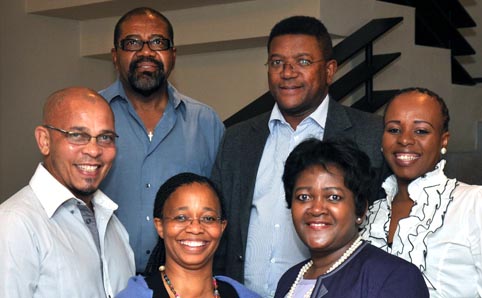Latest News Archive
Please select Category, Year, and then Month to display items
12 October 2020
|
Story Dr Cindé Greyling
|
Photo Supplied
 Exercise and nutrition can work wonders for your mental health – you don’t even have to ‘feel like’ or ‘enjoy’ moving around and eating well for it to work – it does its thing anyway.
Exercise and nutrition can work wonders for your mental health – you don’t even have to ‘feel like’ or ‘enjoy’ moving around and eating well for it to work – it does its thing anyway.
Nowadays, people talk about mental health like it is the common cold – which is good! But do you know what it really means? Being mentally healthy does not only refer to the absence of a mental illness but includes your emotional and social well-being. One would almost want to add physical well-being too, since a healthy body does indeed support a healthy mind. However, since so many people consider themselves ‘mental health experts’, some myths have been sold as truths.
Myth #1 – You are doomed.
Nope. Never. You are never doomed. There is always help. Mental-health therapies range from self-help, talk therapy, medication, to hospitalisation in some cases. Somewhere on this spectrum of treatments, there will be something that works for you. But you must be willing to get the help and do the work. For starters, exercise and nutrition can work wonders – you do not even have to ‘feel like’ or ‘enjoy’ moving around and eating well for it to work – it does its thing anyway.
Myth #2 – It won’t affect you.
It may. Research suggests that one in five people may suffer from a mental illness at some point in their lives. Being well now does not mean that it will stay that way. Biological and environmental factors both impact your mental health. Hopefully not, but at some point, you may experience an event that affects your mental health.
To remain integrated in a community is always beneficial
for anyone suffering from a mental or physical condition.
Myth #3 – Someone struggling with mental health must be left alone.
Hardly! To remain integrated in a community is always beneficial for anyone suffering from a mental or physical condition. You do not need to fix them, but to remain a friend. Continue to invite them, even if they decline. Do not judge, and do not try to understand. Just stay around.
Go and be kind to yourself, and to those around you.
UFS hosts the nation's senior professionals in Student Affairs
2011-12-05
 |
|
Some of the Senior Student Affairs Professionals present at the meeting were back row from left: Dr Llewellyn MacMaster, Dean of Student Affairs: Stellenbosch University; Profs. Bobby Mandew, Dean of Student Affairs: University of Johannesburg; McGlory Speckman, Dean of Student Affairs: University of Pretoria; and Ms Babalwa Ntabeni-Matutu, Department of Higher Education and Training. Front from left are: Dr Choice Makhetha and Ms Khanyisile Nyembenzi, SAASSAP Project Officer from the University of KwaZulu-Natal.
Photo: Stephen Collett
|
The Deans of Students of thirteen of the country’s universities recently gathered at the University of the Free State's (UFS) Bloemfontein Campus to attend the Deans’ Forum of the South African Association of Senior Student Affairs Professionals (SAASSAP).
The heads of Students Affairs from universities such as Stellenbosch, Johannesburg and Pretoria discussed challenges facing higher education institutions and shared campus experiences during their meeting.
Dr Choice Makhetha, Acting Vice-Rector: External Relations at the UFS and President of SAASSAP, says the issues that were addressed included registrations and poverty on campuses. Dr Makhetha, who is serving a second term as president of the organisation, says they came up with strategies on how to support campuses in partnership with the Department of Higher Education and Training.
SAASSAP will host its 14th national conference next year from 24 - 26 October in Bloemfontein. The UFS and the Central University of Technology will host the conference together and it is expected that all twenty three member institutions as well as Student Affairs Associations from abroad will attend.